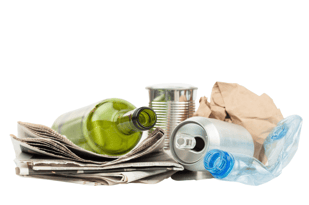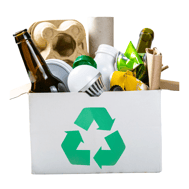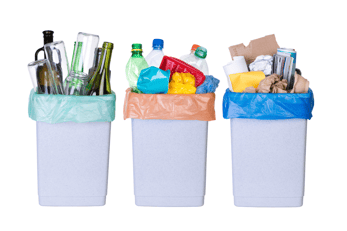
Packaging is an essential part of our daily lives, from the food we eat to the products we buy. However, the production and disposal of packaging have significant impacts on the environment. This article will explore the impact of packaging on the environment and the importance of sustainable packaging.
The Impact of Packaging on the Environment
The Production Process
The production of packaging materials requires a vast amount of energy, water, and resources. The production of plastic packaging, for example, requires significant fossil fuels, and the production of paper packaging entails the use of vast amounts of water and wood. These production processes also create greenhouse gas emissions, contributing significantly to climate change.
The Disposal Process
When packaging ends up in landfills, it can release harmful greenhouse gases such as methane and carbon dioxide. These gases can have catastrophic impacts, producing near-irreparable damage to the environment. Further, plastic packaging that ends up in the ocean can greatly harm marine life and diminish ecosystems.
The Importance of Sustainable Packaging

Conserving Resources
By using renewable or recycled materials, sustainable packaging reduces the demand for virgin materials, conserving natural resources. This reduces the amount of energy and water required to produce packaging materials, reducing greenhouse gas emissions. It also helps contribute to a circular economy, wherein goods and materials are repurposed and serve additional functions along the supply chain.
Minimising Waste
Sustainable packaging is designed to be biodegradable or compostable, reducing the amount of waste that ends up in landfills. Composting sustainable packaging creates a closed-loop system that supports the growth of new plants, reducing the amount of waste sent to landfills and greenhouse gas emissions. Better still, green packaging choices create a reduction in the reliance on virgin plastic and help offset the issues associated with microplastics collecting in oceans and green spaces.
Economic Benefits
Sustainable packaging can also have a range of economic benefits. By reducing waste, businesses can save money on disposal fees and reduce their carbon footprint, as well reduce avoidable tax costs and reduce costs for their partners and customers. Sustainable packaging can also be a way to differentiate a product from its competitors, as consumers become increasingly conscious of environmental issues. This elevates your brand image and showcases your company’s commitment to operate in a more environmentally viable manner moving forward.
Examples of Sustainable Packaging

Biodegradable Plastics
Biodegradable plastics are made from renewable materials, such as plant starch, and are designed to decompose naturally. From food packaging to consumer goods, they can be used for a wide range of products, providing a green option for more sustainable waste management.
Recycled Materials
Packaging made from recycled materials, such as paper or plastic, reduces the demand for virgin materials and conserves natural resources, which is why a growing number of companies are adopting recycled materials as a way to reduce their environmental impact.
Reusable Containers
Reusable containers, such as glass jars or stainless steel water bottles, can help to reduce waste by eliminating the need for disposable packaging. Many consumers are adopting reusable containers as a way to reduce their environmental impact, while consumers are reducing costs through retailers’ reuse schemes and repurposing their purchases to increase value over time.
Understanding sustainable packaging

Sustainable packaging is essential to reducing the environmental impact of packaging. The production and disposal of packaging have significant consequences on the environment, and sustainable packaging can help to mitigate these effects. By using renewable, biodegradable, or recycled materials, sustainable packaging conserves resources, reduces waste, and limits pollution. It’s therefore crucial for both businesses and consumers alike to prioritise sustainable packaging and foster greener waste management practices, to help drive a reduction in emissions and offset longstanding environmental damage.
Taking the steps to greener packing
Understanding the core elements that make up a greener approach to packaging is the first step to a more sustainable business in the long term. But we understand that implementing the necessary changes to foster a greener approach can be a challenge. That’s why we’ve made the transition to eco-friendly solutions easy, with an essential rundown of key products to instantly improve your sustainability profile from the outset.
From Plastic Tax-compliant stretch film and vegan-friendly/FSC-compliant options, to packing tapes made with 85% recycled content, we stock a huge range of solutions to help you on your way to greener operations without the headache or costly investment. We also provide expert consulting services and provide industry-leading customer care for our partners, ensuring the latest product innovations are on offer and tailored solutions are available, no matter the application.
Contact us today by sending a message, or email us at sales@allpack.uk.com to learn more about how we can help you improve your packaging sustainability and reduce your environmental impact.